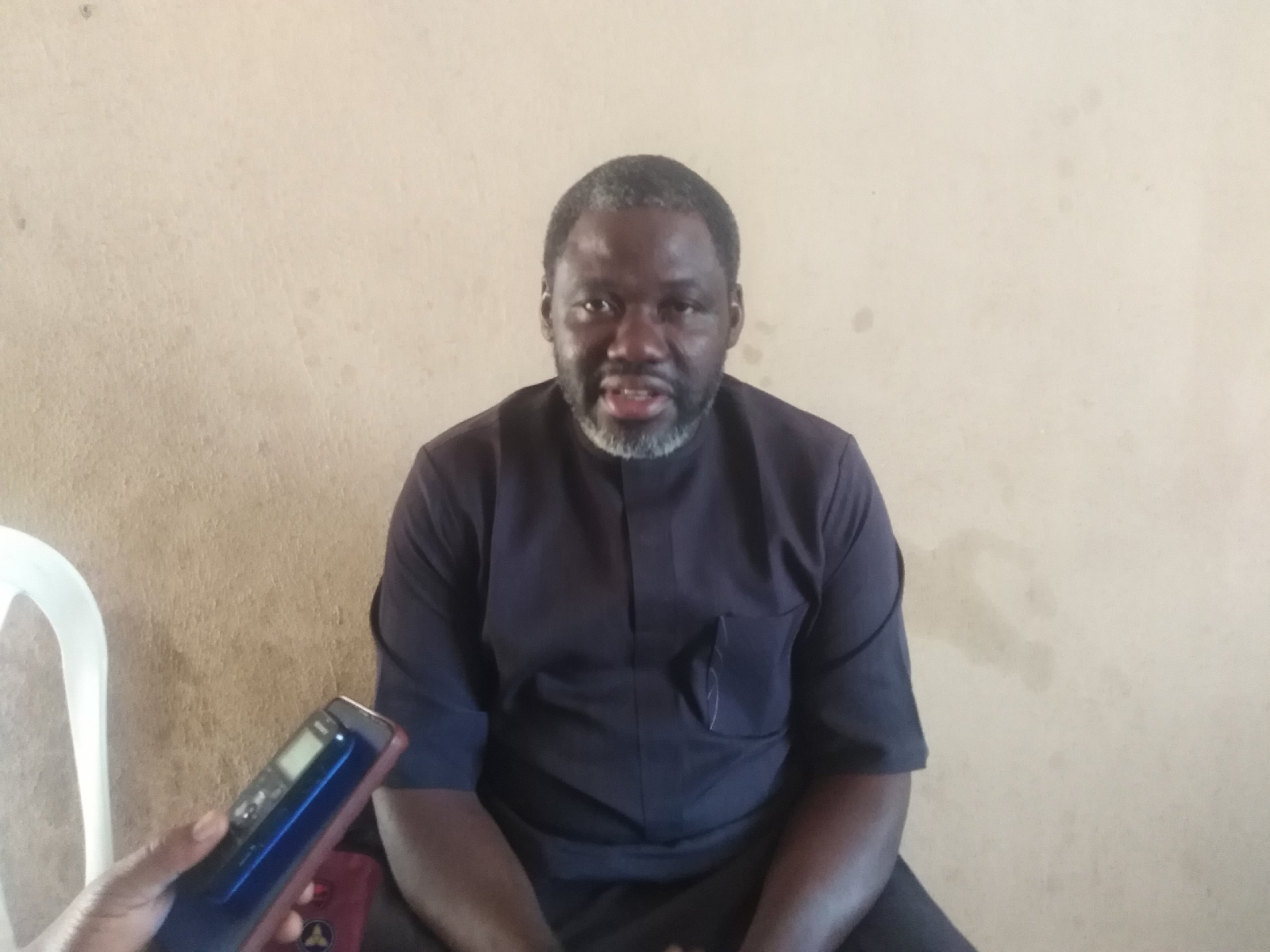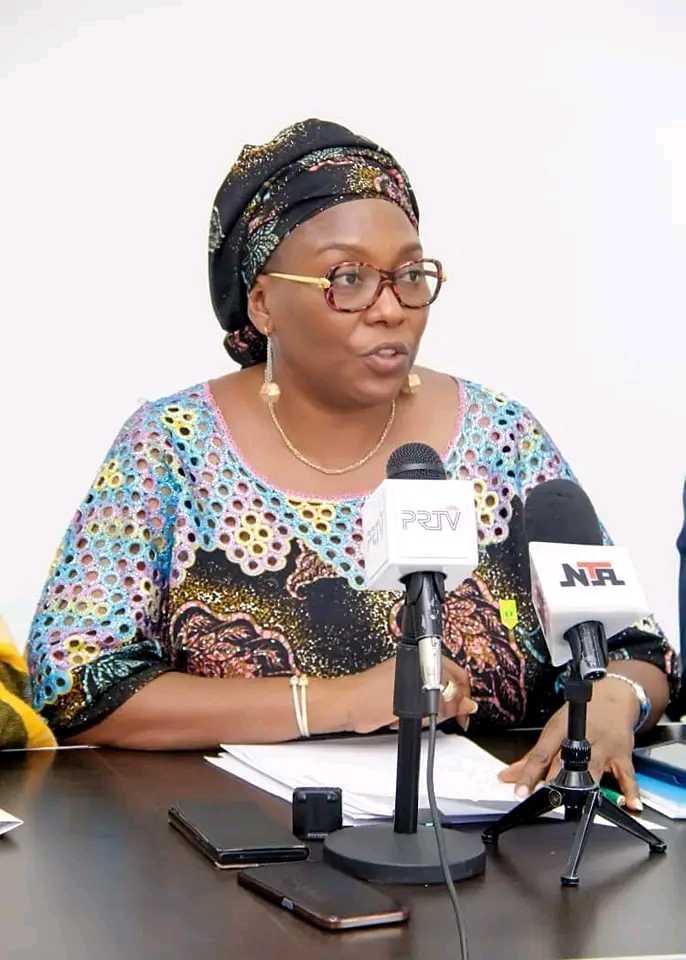2023: Nigeria Doesn't Need Messiah in 2023– Bishop Kukah
...ideally, Muslim-Muslim ticket shouldn’t be an issue
•Campaign language now intemperate, inconsequential, Lawan worries
•Politicians already violating Electoral Act, Gbajabiamila raises the alarm
•NBC warns broadcasters against violence-based electioneering
Bishop of the Catholic Diocese of Sokoto, Rev. Matthew Hassan Kukah, yesterday, said Nigeria did not need a messiah in 2023, but a true leader who would give the whole country, irrespective of tribe, tongue, or faith, a sense of belonging and proper direction. Kukah said Nigerians could not afford another mistake of pinning their hopes on some messiah-like figure.
The priest spoke yesterday in Abuja while delivering a keynote address at a forum on political communication and issue-based campaign in the 2023 general election, organised by the National Institute for Legislative and Democratic Studies (NILDS) and the Kukah Centre.
Kukah was joined at the event by Senate President Ahmed Lawan and Speaker of the House of Representatives, Hon. Femi Gbajabiamila.
The bishop stated that the country’s identity politics had not been properly managed over time. He said the tension raised by the Muslim-Muslim presidential preference of the All Progressives Congress (APC), in saner moments, should not have arisen.
Lawan raised concern about the intemperate campaign language and seeming jettisoning of issue-based campaigns for inconsequential vituperations by parties contesting offices in 2023.
Gbajabiamila shared Lawan’s position on the need for political parties, their candidates, and spokespersons to focus on issues. The speaker warned that some persons were already violating the provisions of the Electoral Act guiding conducts during elections. He urged the Independent National Electoral Commission (INEC) to pay attention to such developments.
Relatedly, Director General of National Broadcasting Commission (NBC), Balarabe Shehu Ilelah, yesterday, cautioned broadcast media organisations against offering their platforms as tools for political campaigns capable of instigating violence and disunity in the country.
Delivering the keynote address, Kukah said, “Nigerians don’t need a messiah this time. We can’t make the same mistake this time. We are the children, the last generation; we are the ones they left behind. The next election should ensure every Nigerian gets a seat in the tent.”
He stated that in a saner clime, issues of religion should not dominate the political discourse on the eve of a critical general election. He said Nigerians needed to be given a sense of belonging, irrespective of their ethnic, political or religious beliefs, adding that anti-corruption campaign message would not be fashionable in the forthcoming elections, as Nigerians have seen it all.
Kukah stated, “I hear conversations on the quality of campaigns and how this campaign should be conducted. A campaigner seeks to draw your attention and there’s nothing wrong with that. It’s not that politicians are bad people; this is not the issue.
“It’s like people, who have won election will tell you: ‘maybe what we thought were the issues, when we were outside, now we are inside, it’s different.’ The challenge, therefore, almost like everything else in life, it’s about readjusting and figuring out how to make things work.
“The greatest challenge for us is that our identity politics has not been well managed. The most important ingredient in politics is diversity. You have heard me in the last seven years or so, I have been relentless.
I am convinced beyond reasonable doubt that, had we developed the skills to manage diversity effectively and efficiently, that’s what is happening in other parts of the world,” the Bishop said.
According to him, “The question for every politician is, what do I want to be known for? Nigeria has produced some dramatic politicians. There are people, who can hold you spellbound. Every campaign must be characterised by a slogan.
Nigeria politicians need to understand that wiping out corruption campaign no longer works. Nigerians are looking for a country they can believe in.
“Our identities are not a problem. Religion is not actually a problem. When you talk about issue-based campaign, there has to be an aggregate of safety: how do you manage a country like Nigeria with so many religious and other differences?
“People have to get a sense that they are in this, too. I think that when we talk about what the issue should be for 2023 election, it’s basically same thing we have been talking.
Every Nigerian has looked himself in the mirror and asked themselves, whether I’m a Christian or Muslim, am I better off now? Under saner moments, we shouldn’t be talking about Muslim-Muslim tickets.
“The questions Nigerians are asking are legitimate and it’s the responsibility of these politicians to deal with it. We need to re-image Nigeria. The Nigeria we have today is not something many of us can recognise.”
In his remarks, Lawan asserted that the emergence of presidential candidates for political parties and the appointment of media spokespersons had thrown up the question of how political messages should be crafted and delivered and the consequence of messaging for the broader polity.
The senate president lamented that in recent times, election campaigns had shifted from the core issues of governance to irrelevant and frankly nonsensical attacks on the personalities of the various candidates.
He said politicians had once again distracted Nigerians from assessing those who sought political office based on the merit of their views.
He noted that the 9th National Assembly had taken deliberate steps to strengthen the democratic process, particularly, through the passage of the 2022 Electoral Act, which made numerous changes aimed at improving transparency and voter confidence.
Lawan said the legislature had ensured that the needed funds were provided to INEC to deliver hitch-free elections.
He added that the meeting of the key players in the various political parties was intended to discuss the critical issue of campaign framing, stem the tide of negative campaigning, and create harmony.
According to the senate president, “Since independence, elections in Nigeria have been characterised by polarising rhetoric and deep-seated divisions relating to ethnicity, religion and other primordial sentiments.
These are well captured in the literature on elections and governance in Nigeria that show the damaging effects of negative campaigning over the years.
“Against this background, and ahead of the commencement of campaigns, this forum assumes an even greater significance.
The proliferation of the Internet and social media platforms and the growing culture of fake news pose new threats to our collective existence. Politicians at all levels must be cognisant of this and take measures to mitigate them.
“For the first time since 1999, our campaigns have moved from substantive issues to inconsequential and sometimes, vile vituperations.
We have shifted our focus from the core issues of governance to irrelevant and frankly nonsensical attacks on the personalities of the various candidates.
Inadvertently, we are also exploiting primordial sentiments for political purposes, not minding the danger this poses to our democratic experiment.”
Supporting Lawan’s views, Gbajabiamila lamented that some key provisions of the Electoral Act, particularly, regarding political campaigns, had been violated.
He identified the use of intemperate, slanderous and base language as well as insinuations targeted at provoking violent reactions or emotions as some of the violations.
The speaker said it was easy to hurl insults at opponents, but it took discipline, focus and political maturity to make campaigns issue-based. He warned that it was a great disservice to Nigerians to focus on frivolous and inconsequential issues.
Gbajabiamila stressed that the legislature was keen on forestalling the tendency for the political class to exploit cultural differences to further inordinate political agendas.
Gbajabiamila urged media organisations to focus on protecting democracy and the rights of citizens to hold politicians and the government accountable.
He stated, “As we prepare to commence campaign activities, precisely nine days from today, (statutorily for a period of 150 days before polling day), it is critical that we familiarise ourselves with the rules of the game and set ourselves a basic standard of conduct, mainly, because of our place as leaders and weight that our utterances carry among our supporters and followers.
“The Electoral Act 2022, one of the most significant legislations passed by the National Assembly since 1999, contains critical provisions on the conduct of political campaigns.
Section 92 states that ‘a political campaign or slogan shall not be tainted with abusive language directly or indirectly likely to injure religious, ethnic, tribal or sectional feelings’.
“Sub-section 2 is even more direct in its prohibition of intemperate, slanderous or base language, insinuations, or innuendoes designed or likely to provoke violent reactions or emotions.
INEC must uphold and strictly implement the provisions of the Electoral Act, 2022 and the Regulations and Guidelines. In this regard, INEC’s messaging should be simple, direct and devoid of ambiguities.
“The media occupies a central position in political campaigns and can be the difference between peaceful and destructive campaigns. However, at its worst, media can inadvertently enable the spread of false information and fuel uncivil discourse, breeding voter cynicism and distrust. This happens when the media chooses to focus on sensational news items and the personalities of individual politicians rather than substantive issues.”
Earlier, in his welcome address, Director General, NILDS, Professor Abubakar Sulaiman, said political messages must be tailored to sustain Nigeria’s democracy.
Sulaiman said the build-up to the 2023 general election raised genuine concerns about the pattern of public communication among political actors, their publicity agents, and other related stakeholders, especially, those actively engaged in media and communication.
On his part, Minister of Information, Alhaji Lai Mohammed, represented by Director of Performing Arts, National Council for Arts and Culture, Sam Agi, noted that hate speech, misinformation and other ways of manipulating messages were apparent. He tasked politicians on grassroots mobilisation during campaigns.
Chairman of Interparty Advisory Council (IPAC) and presidential candidate of Action Democratic Party (ADP), Yabaji Sani, assured that candidates would run issue-based campaigns.
Chairman, Senate Committee on Media, Bashiru Ajibola, in his goodwill message, said, “It is very shocking that ahead of the general election, we are already getting it wrong.
What we hear ahead of the election is status report on age, health, religion of candidates, and other mundane issues. We should channel our energy to get the democracy to work to lift our people out of the vicious cycle of poverty.”
NBC Warns Broadcasters Against Violence-provoking Campaign
Director General of National Broadcasting Commission (NBC), Balarabe Shehu Ilelah, yesterday, cautioned broadcast media organisations against broadcasting campaigns capable of instigating violence and disunity in the country.
Ilelah said this in Kano at the opening of the Nationwide Sensitisation Forum on Political Broadcasting ahead of next year’s general election.
He stated that the commission would sanction any broadcaster, which circumvented the code of conduct, Electoral Act, and other extant laws, while engaging in 2023 political campaigns.
Ilelah stated that broadcasters were not statutorily empowered to announce or declare election results before INEC. He warned that any media organisation that unilaterally assumed the position of INEC would be dealt with appropriately.
The NBC director general reminded the broadcasters drawn from the North-west and North-east of the statutory responsibility of the commission to ensure a safe and peaceful ecosystem before and during election.
Maintaining that practitioners must act responsibly, he stressed that broadcasters must ensure equal allocation of airtime during their peak period for jingles and programmes. He said political parties had the responsibility to report any outfit that abused their rights for necessary sanction.
Ilelah stated, “Broadcasters are meant to offer equal platforms for exchange of ideas in a fair manner. Political broadcasting must be tailored to promote national unity, political harmony, and tolerance.
“It will not be business as usual. Broadcasters must desist from spreading fake news, hatred speeches, and derogatory remarks. We have to promote peace, not violence, educate not misinform, and safeguard and not destroy the society.”




Comments
Post a Comment